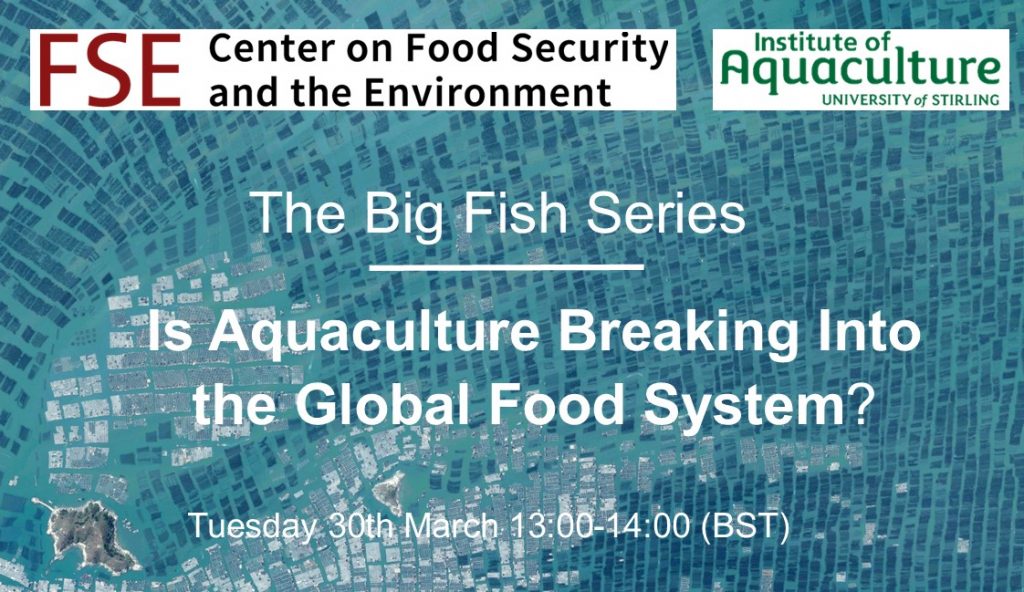
Credits: Created by Overview, source imagery by Maxar Technologies
‘Is Aquaculture Breaking Into the Global Food System?’ was the third seminar of the series co-hosted by Center on Food Security and the Environment (FSE).
Audience questions were answered by our Panel and can be read here:
Stanford University’s Center on Food Security and the Environment (FSE) addresses critical global issues of hunger, poverty and environmental degradation. Its long-term goals focus on designing new approaches to solving food security’s global challenges by building an evolving research portfolio with a team of experts in relevant scientific, economic, and policy areas. FSE is a joint effort of the Freeman Spogli Institute for International Studies and the Woods Institute for the Environment at Stanford University.
Twenty years ago, a highly influential review was published in Nature ‘Effect of Aquaculture on World Fish Supplies’. The review outlined aquaculture as a possible solution, and a contributing factor, to the decline in fisheries stocks worldwide. In this seminar will be looking back at 20 years of aquaculture, following the recent release of a Nature article which explores how things have changed for Global aquaculture.
Researchers at the Center on Food Security and the Environment (FSE), along with co-authors, have debated the sustainability of aquaculture, reviewing the developments in global aquaculture 1997-2017, in a 20-year retrospective integrating industry subsectors and relating aquaculture to the global food system. Aquatic food consumption has doubled in the last 50 years facilitated by fish farming and in 2018 156 million tonnes ended up on consumers plates. Global aquatic food production includes fish, crustaceans, molluscs and algae and is an essential part of the Global Food System to ensure a secure food supply to meet a growing population. continued growth in freshwater aquaculture volume and value chains.
The review identifies three main patterns of development in aquaculture development over the 20 years:
- continued growth in freshwater aquaculture volume and value chains.
- advances in fish nutrition, genetics, and alternative feeds that reduce the use of wild fish in aquafeed formulations.
- expanded culture of extractive bivalves and seaweeds with potential to provide a wide range of food, industrial, and ecosystem services.
Aquaculture how now become more integrated into the global food system due to this rapid growth in production, transformation in feed ingredients, production technologies, farm management and value chains.
The seminar opened with a short presentation outlining the findings of this 20-year retrospective of aquaculture provided by Dr Roz Naylor, Center on Food Security and the Environment (FSE). This was followed by a video mash-up of academic, industry and consumer views and an interactive discussion on the topic with a diverse panel of experts.
Further information can be found in the article recently published in Nature ‘A 20-Year Retrospective Review of Global Aquaculture’ and an Economist Blog ‘Acknowledging Blue Foods as Key to the Global Food Puzzle’.